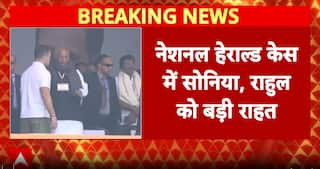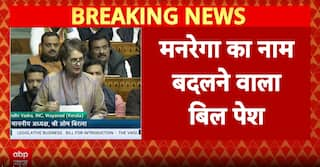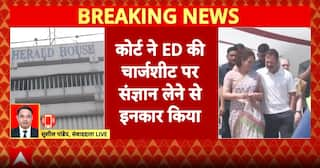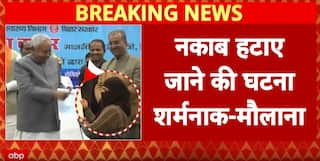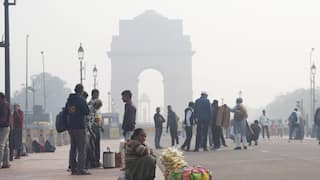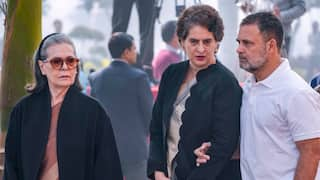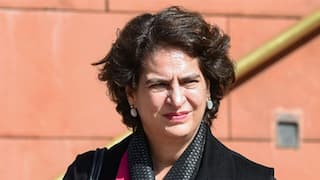Jawaharlal Nehru Or Netaji Bose Who Was India's First PM? Here's What History Says
Kangana Ranaut recently claimed that Subhas Chandra Bose, not Jawaharlal Nehru, was India’s first prime minister.

In a recent interview, actor-turned-politician Kangana Ranaut said that Subhas Chandra Bose, not Jawaharlal Nehru, was the first Prime Minister of an independent India. Ranaut’s statement sparked a debate over India’s first prime minister. The actor’s claims also drew criticism from Subhas Chandra Bose's family. Bose’s family slammed the BJP candidate and said that no one should "distort history for their political ambition.”
Sharing a news article in a post on X, Subhas Chandra Bose's grand-nephew Chandra Kumar Bose said, "No one should "distort history for their political ambition."
No one should distort history for their political ambition! @narendramodi @AmitShah @JPNadda @KanganaTeam pic.twitter.com/x5hHXDGk6O
— Chandra Kumar Bose (@Chandrakbose) April 7, 2024
"Netaji Subhas Chandra Bose was a political thinker, soldier, statesman, visionary and the 1st PM of undivided India. The only leader who could unite all communities as Bharatiyas to fight for India’s freedom. Real respect to the leader would be to follow his inclusive ideology," Chandra Kumar Bose said in another post.
Netaji Subhas Chandra Bose was a political thinker,soldier,statesman, visionary and the 1st PM of undivided India.The only leader who could unite all communities as Bharatiyas to fight for India’s freedom.Real respect to the leader would be to follow his inclusive ideology. pic.twitter.com/W4zjrHYOVs
— Chandra Kumar Bose (@Chandrakbose) April 6, 2024
What is the truth behind this, and what does history say about it? To understand reality, there is a need to dive deep into the past.
The Azad Hind Government
On October 21, 1943, during the time of World War II, Subhas Chandra Bose proclaimed the formation of the Provisional Government of Azad Hind (“Free India”) in Singapore.
“In the name of God, in the name of bygone generations who have welded the Indian people into one nation, and in the name of the dead heroes who have bequeathed to us a tradition of heroism and self- sacrifice — we call upon the Indian people to rally round our banner and strike for India’s freedom,” Bose said in a fiery speech in the Cathay Theatre, the Indian Express quoted Sugata Bose’s His Majesty’s Opponent, 2011.
'Netaji' Bose received support from the Axis Powers of Japan, Nazi Germany, Italy, and their allies. He appointed himself as the prime minister and minister of war and held the foreign affairs and war portfolios.
AC Chatterjee was in charge of finance, SA Ayer became minister of publicity and propaganda, and Lakshmi Swaminathan was given the ministry of women’s affairs. Some officers of the Azad Hind Fauj also got cabinet posts.
The Azad Hind government claimed authority over all Indian civilian and military personnel in Britain’s Southeast Asian colonies (primarily Burma, Singapore, and Malaya), which had fallen into Japanese hands during World War II, according to a report by the Indian Express.
Besides that, it also claimed prospective authority over all Indian territory that would be taken by Japanese forces, and Bose’s Azad Hind Fauj, as they attacked British India’s northeastern frontier. In order to give legitimacy to his government, Bose chose the Andamans.
“It [the Azad Hind government] obtained de jure control over a piece of Indian territory when the Japanese handed over the Andaman and Nicobar islands in late December 1943, though de facto military control was not relinquished by the Japanese admiralty,” Sugata Bose wrote, as quoted by the Indian Express.
The government also gave citizenship to Indian people who were living in Southeast Asia. According to Sugata Bose, 30,000 expatriates pledged allegiance to it in Malaya alone. The government formed by Bose got recognition from the Axis powers and their satellites: Germany, Japan, and Italy, as well as Nazi and Japanese puppet states in Croatia, China, Thailand, Burma, Manchuria, and the Philippines. The Azad Hind government declared war on Britain and the United States immediately after being formed.
Raja Mahendra Pratap's Provinsial Govt
Much like Bose allied with the Axis powers during World War II to fight the British, during World War I, Indian nationalists abroad (mostly in Germany and the US), as well as revolutionaries and Pan-Islamists from India, attempted to further the cause of Indian independence with aid from the Central Powers. The IIC, with the help of the Ottoman Caliph and the Germans, tried to foment insurrection in India, mainly among Muslim tribes in Kashmir and British India’s northwestern frontier.
To further this cause, the IIC established a government-in-exile in Kabul under the presidency of Raja Mahendra Pratap, and the prime ministership of Maulana Barkatullah, revolutionary freedom fighters who spent decades outside India trying to gather international support for Indian independence.
First Provincial Government
In 1915, much before the Azad Hind government was formed by Subhash Chandra Bose, Raja Mahendra Pratap formed India’s first provincial government in Kabul. Maulana Barkatuallah of Bhopal was made the prime minister of the government. These leaders formed the Indian Independent Committee (IIC) with the aim of fighting for independence with aid from the Central Powers.
With the help of the Ottoman Caliph and the Germans, the IIC tried to cause a revolt mainly among the Muslims in Kashmir and British India’s northwestern frontier. Among the many moves orchestrated by Ghadarite revolutionaries was the Kabul provisional government. The Ghadar movement, which began in California in 1913, aimed to overthrow British rule in India.
Barkatullah was also one of the founders of Lala Har Dayal, one of the movement’s leaders who put forth the following plan of action for the Ghadaritess.
“…use the freedom that is available in the US to fight the British…British rule must be overthrown, not by petitions but by armed revolt…carry this message to the masses and to the soldiers in the Indian Army…enlist their support,” the Indian Express quoted Bipan Chandra and others in India’s Struggle for Independence, 1988.
“If success and failure are to be measured in terms of the deepening of nationalist consciousness, the evolution and testing of new strategies and methods of struggle, the creation of tradition of resistance, of secularism, of democracy, and of egalitarianism, then, the Ghadarites certainly contributed their share to the struggle for India’s freedom,” Chandra and others wrote, as quoted by the Indian Express.
Provincial Governments Are Not Actual Governments
The provincial governments cannot be considered actual governments. The formation of such governments and governments-in-exile has been a way for resistance movements to gain political legitimacy.
Both the 915 and 1943 provisional governments were symbolic acts of defiance against British rule in India. Bose proclaimed the Azad Hind government to legitimise his armed struggle against the British.
Through a provisional government, he gave his army legitimacy in the eyes of international law. It is pertinent to mention that citizenship oaths taken by Azad Hind Fauj officers were produced during the 1945-46 Red Fort trials as evidence of the legality of their actions.
The Kabul government was proclaimed to establish the seriousness of IIC’s intentions. Neither of the two provisional governments can be called the Government of India.










